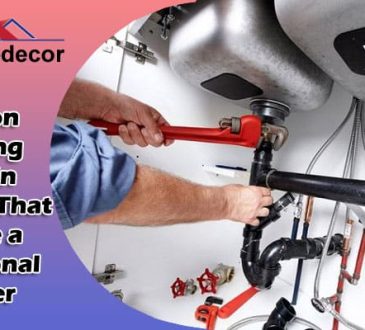
Dealing with a clogged sewer line can be a frustrating and unpleasant experience for any homeowner in Charleston. A clog in your sewer line can lead to backups, foul odors, and potential damage to your property if not addressed promptly. Knowing what steps to take when faced with this issue is crucial. In this article, we will guide you through the necessary actions to take when you have a clogged sewer line in Charleston.
Identify the Signs:
The first step in addressing a clogged sewer line is to identify the signs of a problem. These signs may include multiple drains backing up simultaneously, gurgling sounds coming from drains or toilets, slow-draining sinks or toilets, foul odors emanating from drains, or even sewage backups in the lowest drains of your home. If you notice any of these signs, it is likely that you have a clogged sewer line.
Turn Off Water Usage:
When you suspect a clogged sewer line, minimizing water usage in your home is crucial. Stop using sinks, toilets, showers, and any other water-using appliances. This will help prevent further backups and potential water damage to your property.
Avoid DIY Methods:
While it may be tempting to try do-it-yourself methods to clear the clog, it is generally not advisable for sewer lines. Harsh chemicals, drain snakes, or other household tools can worsen the problem or cause damage to the pipes. It is best to leave the job to professionals with the right equipment and expertise to handle sewer line clogs effectively.
Call a Professional Plumber:
Clogged sewer lines are complex issues requiring a professional plumber’s expertise. Several reputable plumbing companies in Charleston specialize in sewer line repair and maintenance. Contact a licensed and experienced plumber as soon as possible to assess the situation and provide the necessary repairs.
Schedule a Camera Inspection:
To accurately diagnose the cause and location of the clog, your plumber may recommend a camera inspection. A small camera is inserted into the sewer line to provide real-time video footage of the inside of the pipes. This helps identify the nature of the clog, whether it’s caused by tree roots, grease buildup, or other obstructions, and allows the plumber to determine the best course of action for clearing the blockage.
Clearing the Clog:
Once the cause and location of the clog are identified, the plumber will determine the most appropriate method for clearing it. Hydro-jetting is a common technique used to remove stubborn clogs from sewer lines. This process involves using high-pressure water to flush out the debris and restore proper flow. In some cases, excavation may be required to repair or replace damaged sections of the sewer line.
Preventative Maintenance:
After the clog has been cleared, it is essential to take preventative measures to avoid future sewer line issues. Regular maintenance, such as scheduled inspections and routine cleaning, can help keep your sewer lines clear and functioning correctly. Avoid disposing of items that can cause clogs, such as grease, sanitary products, wipes, and excessive amounts of toilet paper.
Consider Sewer Line Insurance:
Sewer line issues can be costly to repair, especially if extensive excavation or replacement is required. Considering sewer line insurance can provide you with financial protection in case of unexpected repairs. Contact your insurance provider to inquire about coverage options for your sewer line.
In conclusion, dealing with a clogged sewer line in Charleston requires prompt action and professional assistance. Identifying the signs, minimizing water usage, and contacting a licensed plumber are the first steps to take. Avoid DIY methods, schedule a camera inspection, and rely on the expertise of a plumber to clear a clogged sewer line.

